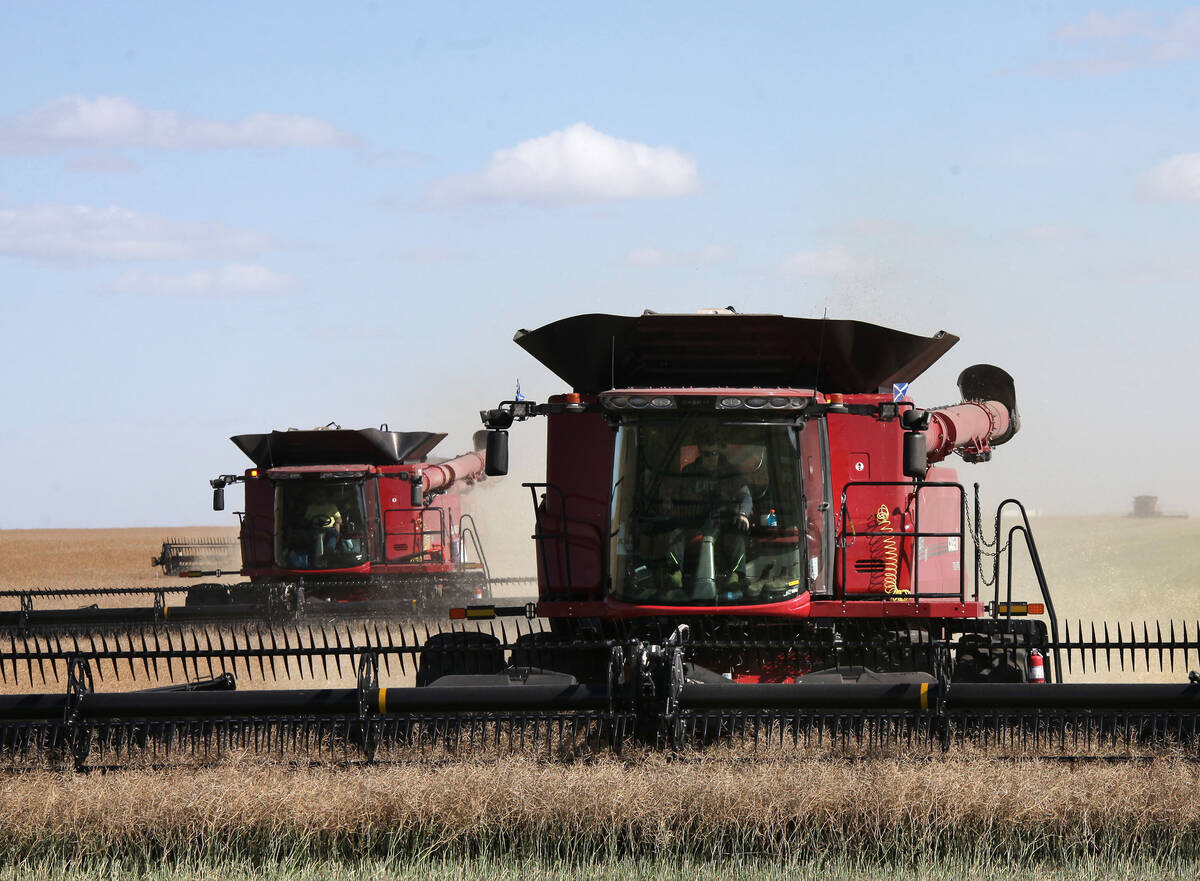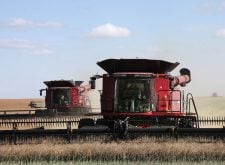U.S. grain handler Scoular is stepping up its Canadian Prairie flax processing game as it completes its exit from the region’s pulse crop sector.
The company last year opened up a high-speed flax line at its pulse and special crops site at Richardson, Sask., just southeast of Regina — and it has now moved to focus “100 per cent” on flax at that site and completed a list of upgrades to that effect.
Scoular announced Sept. 7 it now has three processing lines at Richardson dedicated to flax, effectively doubling its capacity — and has boosted its flax-specific storage there to 280,000 bushels.
Read Also

Notable changes in exports to China, India
China and India figured prominently in the September export data issued by the Canadian Grain Commission on Nov. 7. For the most part, the CGC’s numbers highlighted issues with grain, oilseed and pulse exports from licensed facilities to those countries.
Robert Deraas, Scoular’s general manager for flax, said in a blog post that the upgrades also include new “state-of-the art equipment that enables the site to meet the highest level of food safety standards.”
The plant, he said, is Global Food Safety Initiative-certified, benchmarked to the FSSC 22000 standard, and also holds organic certification. It can produce whole and milled brown or golden flax for applications such as breads, snacks, oils, supplements, pet foods and feed.
Plus, he said, the Richardson plant’s outbound loading for both truck and rail have been upgraded to improve speed and efficiency and thus “more quickly meet end-user needs.”
‘Growth goals’
The improvements at Richardson, he said, follow Scoular’s decision earlier this year to exit the pulse business, “enabling our company to focus 100 per cent on flax at the site and provide a reliable supply of flax ingredients for our feed, food and crush customers.”
A Scoular rep said separately via email that the company decided to exit the pulse business as part of its management’s continual company-wide reviews of its investments.
“The health of the pulse business continues to decline and Scoular’s right to win no longer exists within this business,” the company said. “Closing the pulse business allowed us to focus on areas where we are in a better position to achieve our growth goals.”
Pulses and special crops were the point of entry on the Prairies for Omaha-based Scoular in 2015, when it took over that division of Legumex Walker.
An earlier step away from Prairie pulses came in 2020, when Scoular sold its edible bean operations in Manitoba and Minnesota to Cooperative Elevator Co. of Michigan.
That exit now also includes plans to sell two other Scoular sites in Saskatchewan: a pea, bean and chickpea cleaning and splitting plant at Runciman, and a pulse and special crop cleaning and processing plant and elevator at Brooksby, both near Tisdale in the province’s northeast.
The sales of those two sites, either together or separately, are being conducted by open tender and include the buildings and equipment. The Runciman sale also includes the land, while the land at Brooksby is leased from Canadian National Railway.
Trends
As for the company’s flax focus, Deraas said the current trends in that crop “provide good timing for Scoular’s effort.”
Increasing consumer awareness of the health benefits of flaxseed “creates opportunities for growers,” he said, and the Richardson site “will help farmers capitalize on those trends.”
The site’s technology, he said, enables Scoular to deliver “some of the highest purity flax available on the market.”
Scoular’s merchandising team, he said, “got a first-hand look at this season’s crop as we drove North America’s flax growing region this summer,” walking fields and visiting growers from North Dakota’s Red River Valley up across the northern Prairies.
“We saw good to excellent crop stands with average or better seed counts in most fields, signs that the crop is looking good, despite drought conditions,” Deraas said.
“Our prediction is the crop will meet average yields for North America’s main flax-growing regions.”
That said, Canada is on track in 2023 to produce its second-smallest flax crop in almost 70 years.
Statistics Canada recently forecasted this year’s domestic flax crop will come in at 267,900 tonnes, well down from the 473,200 produced in 2022. — Glacier FarmMedia Network















